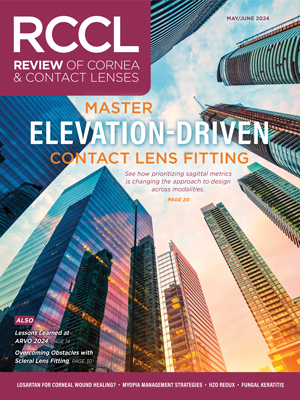 |
The airline recently lost my bag. Nothing is notable about this fact in and of itself—actually, it’s happened before. And indeed, the initial drill this time was the same as every other time: wait in a line and fill out a form describing what the bag looked like, give the agent your the baggage stub and pray. Sometimes you get lucky and they find the bag with enough time to put it on the next flight; other times, you may receive it a few days later having survived with just your carry-on. I knew that chances were I’d get it back eventually, I just didn’t know when.
This particular time took a different turn, however, once I arrived at the front of the line to speak to the agent there. Admittedly, she had a pretty thankless job since by definition, everyone she deals with is unhappy, so I wasn’t expecting much. Of note, however, was the way in which she dealt with me specifically—it made me think about the way many of us and our staff members deal with the patients who come into our practices.
Now, there isn’t much she could have done in terms of recovery short of snapping her fingers and producing the lost luggage then and there. What she did do, however, was display a funny and empathetic personality that helped ease the otherwise negative ordeal.
Thinking about every other employee I’ve ever encountered or seen at the airport, she stood out as different to me in a profoundly positive way. My impression of her willingness to help, and the clear acknowledgment that I was truly inconvenienced by the lost luggage was even further helped when she said, at least what you’re wearing now will work great for everything from a corporate business meeting to a rock concert to a trip to the beach. But, I understand—you’d prefer the gold tuxedo in your suitcase. I’ll try and get it to you as quickly as I can.
Keep One Hand on the Wheel
There are many things that occur in the eye care office that to a large extent, we cannot control. Take for example, a patient with an insurance benefits package that only covers the cost of a single examination every two years. When you recommend to them that they come in each year, they may become frustrated. How do you soothe this situation? The knee-jerk response for many practitioners is to simply tell the patient, we’re sorry, that’s how your insurance works. It’s not our fault and send the patient on their way. However, though this is factually accurate, it’s not the best way to deliver this information. What if the luggage hunter (her self-given name) I encountered at the airport said, yeah, I agree—it’s too bad the airline lost your luggage. Nothing I can do about it, though!
Many of us understand the benefits of turning a bad customer service situation into a good one by going above and beyond using a service recovery strategy. Yet, few people recognize that even in day-to-day interactions with patients—whether things go smoothly from the get-go or not—an unexpectedly pleasant doctor and staff demeanor can be just as memorable. This behavior should be an integral part of your practice culture, as there are invariably many more times that things will go right instead of wrong as a result, and many more patients—essentially all of them—that will be impacted in a better way. As an exercise for your staff members, work out some hypothetical patient encounters that happen frequently and challenge your staff to consider the following: how can a routine, mundane patient-facing task be changed in such a way that patients immediately see it as a positive encounter instead of a negative or even neutral one? And, how can our personal execution and involvement in this task be modified so patients see us as a more memorable and positive advocate for their care?
Though the answer to these questions likely depends on the dynamics of the practice and its staff members, one factor to note: don’t think in terms of “big heroic actions” like getting a certain pair of back-ordered lenses in faster. Instead, focus on the key “daily grind” items like booking appointments, escorting patients, completing clinical tests and all of the other small tasks that, when done correctly and in a timely manner, gel together to form your patient’s good experience with your practice.


